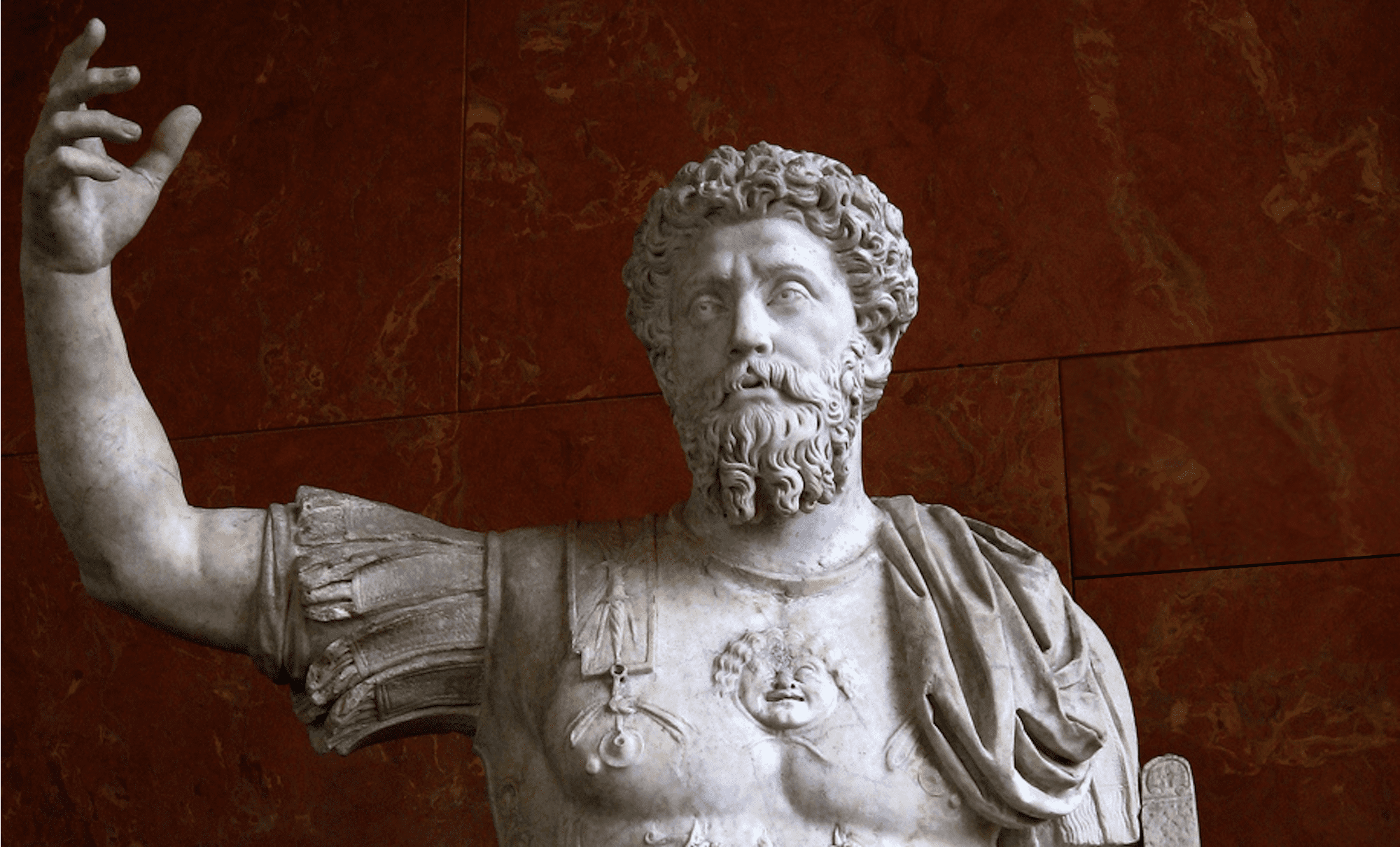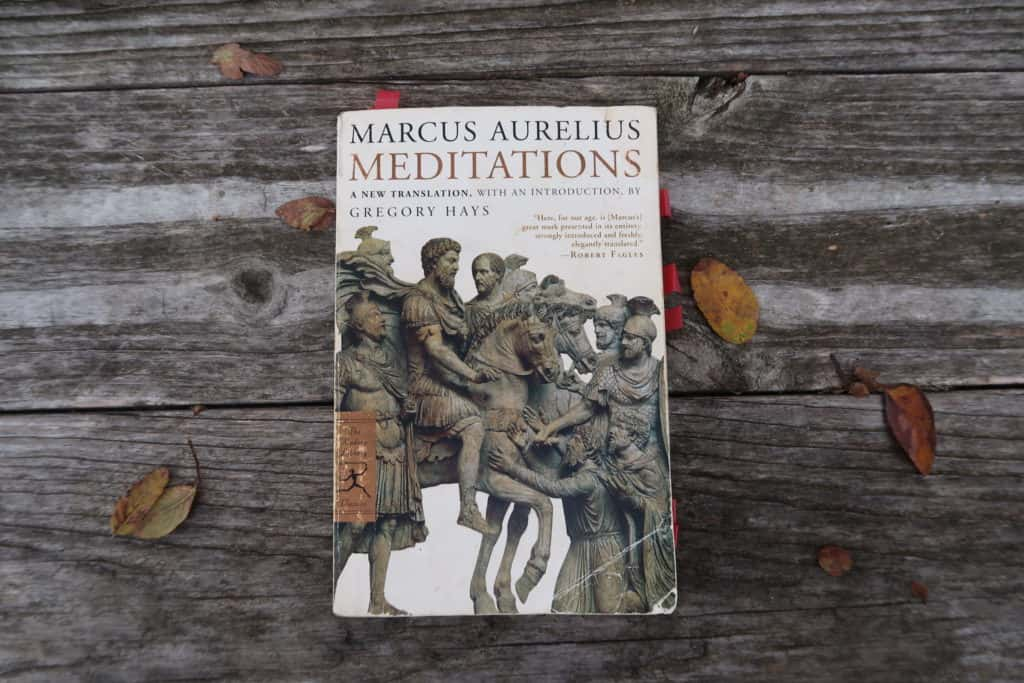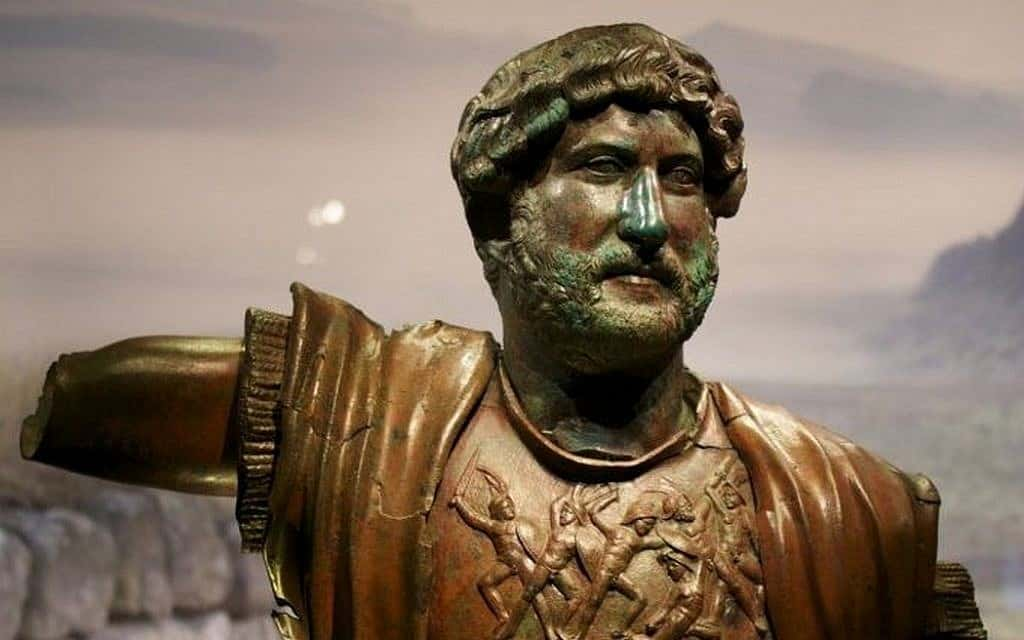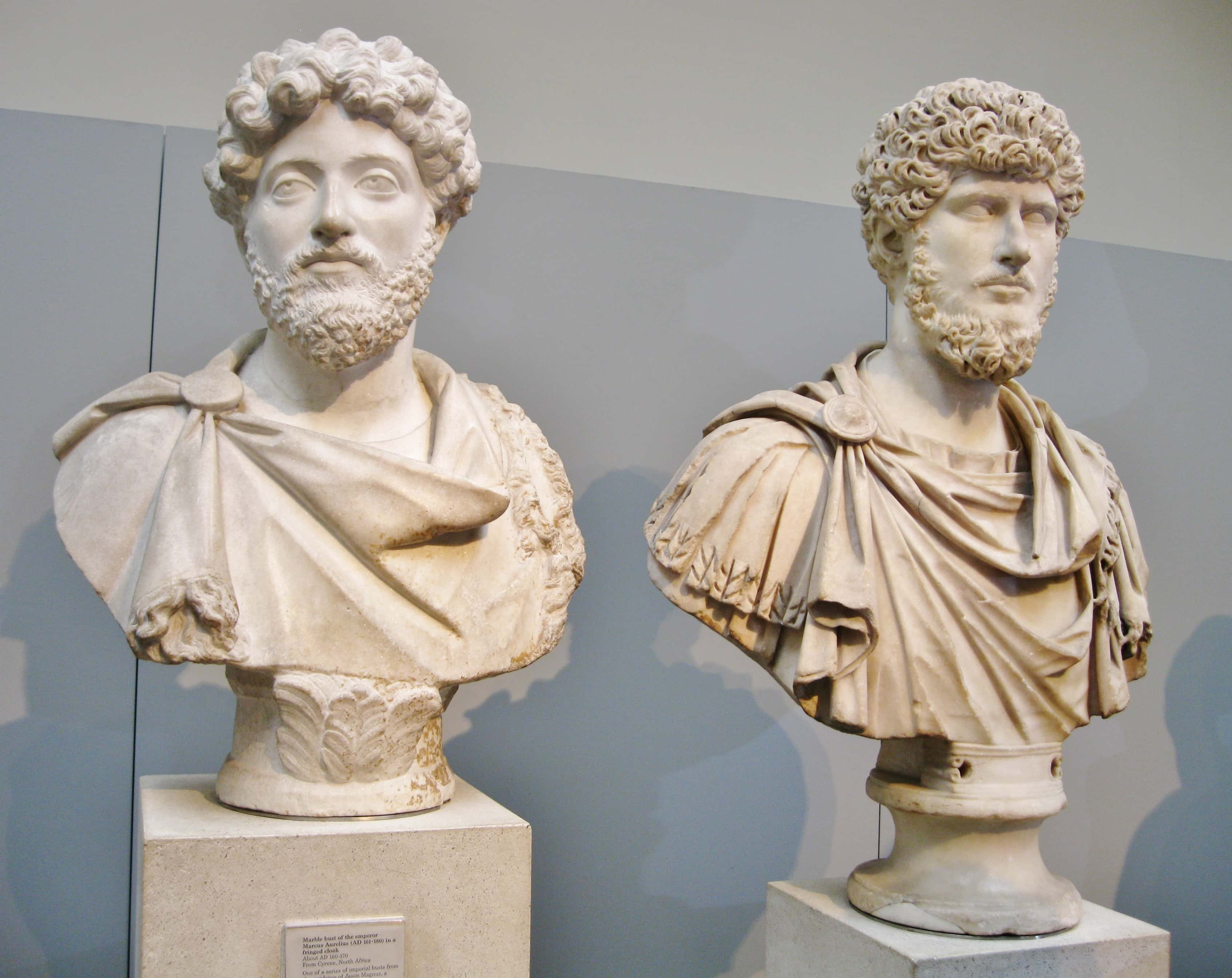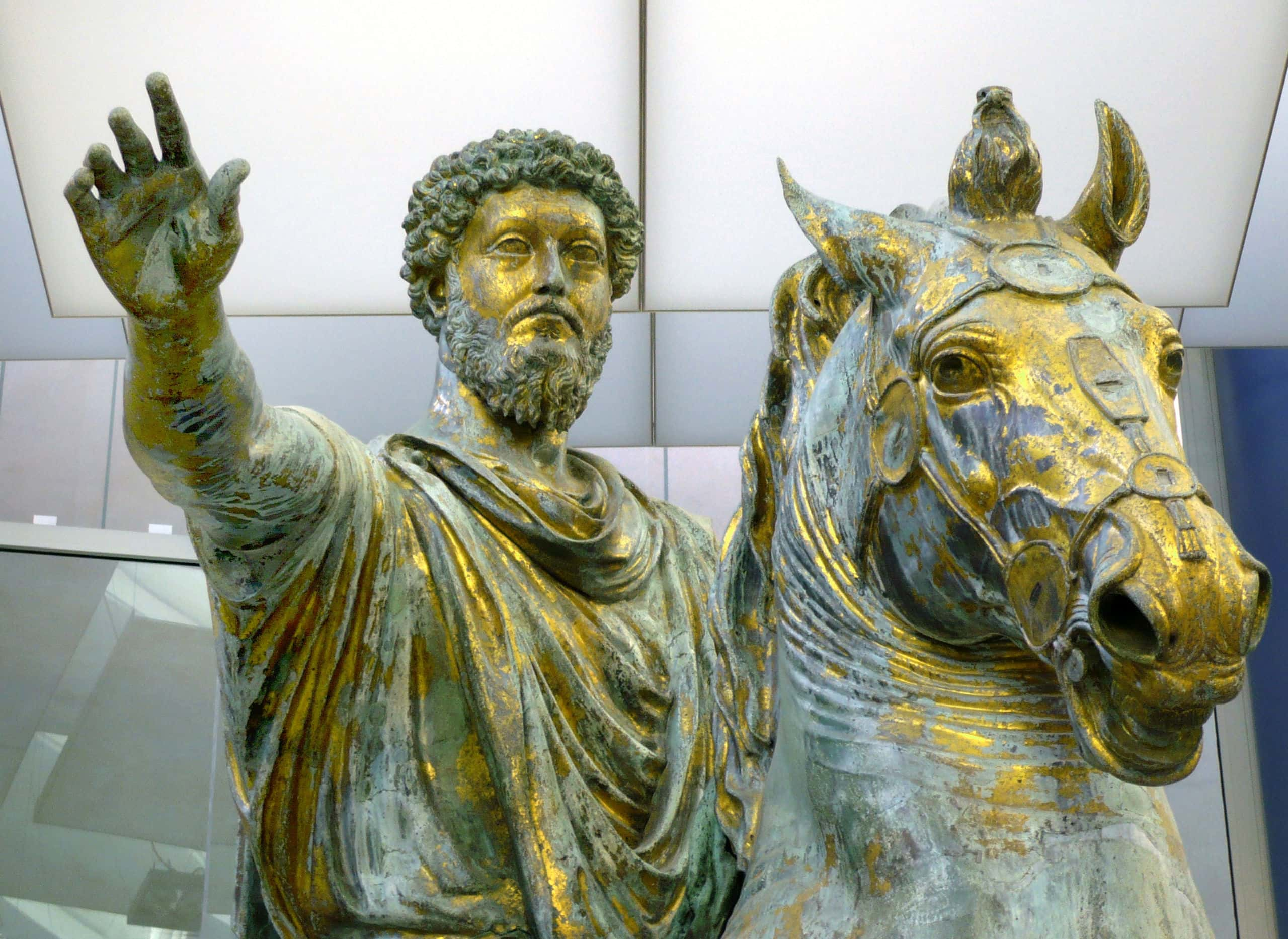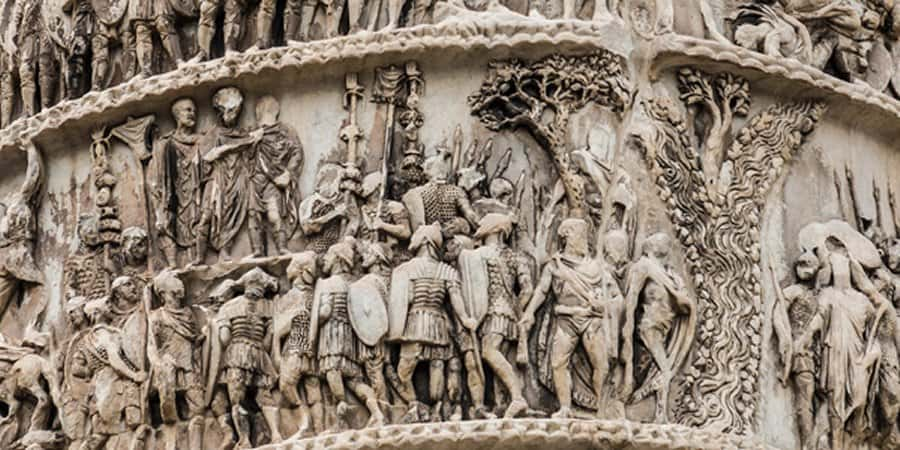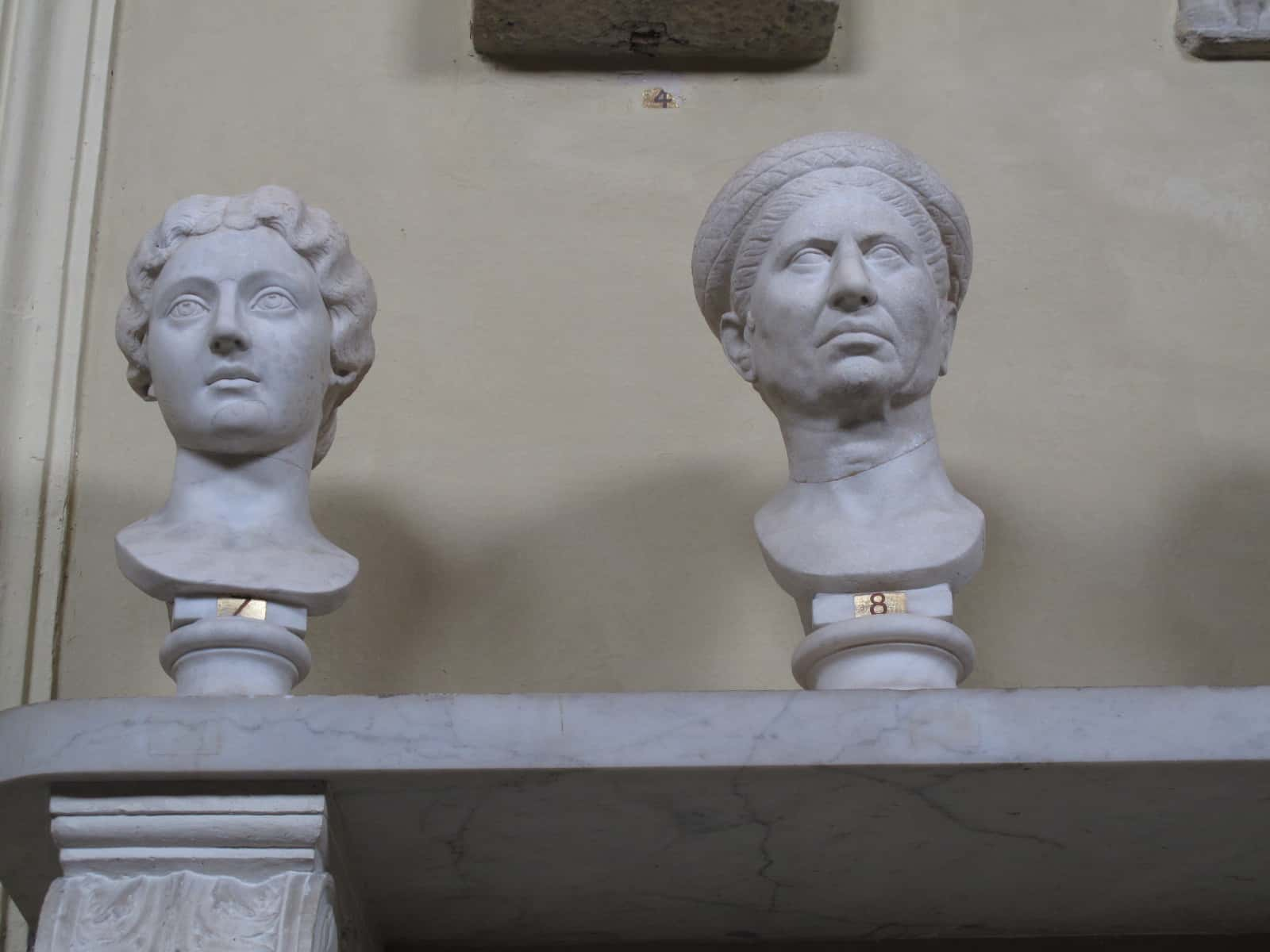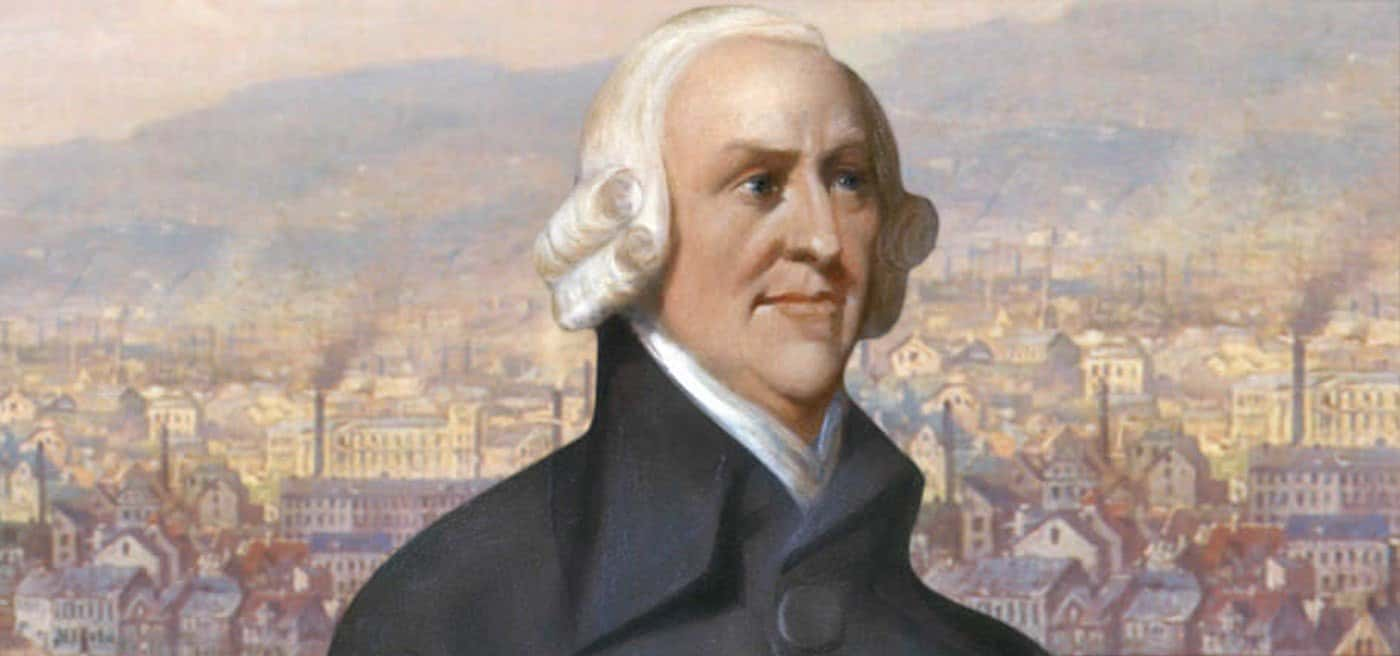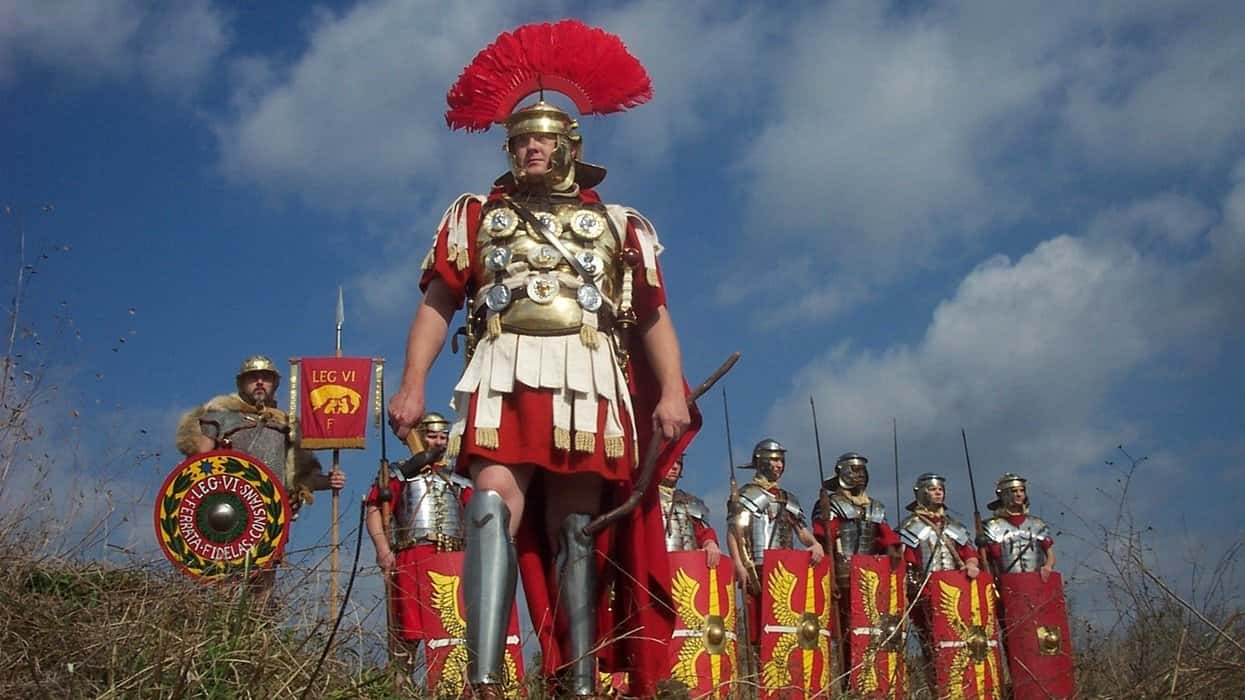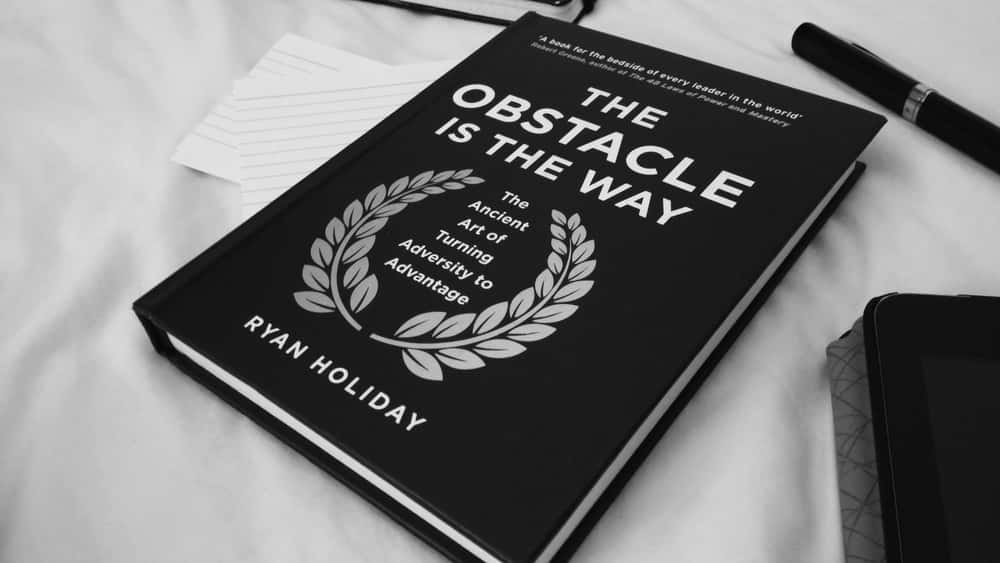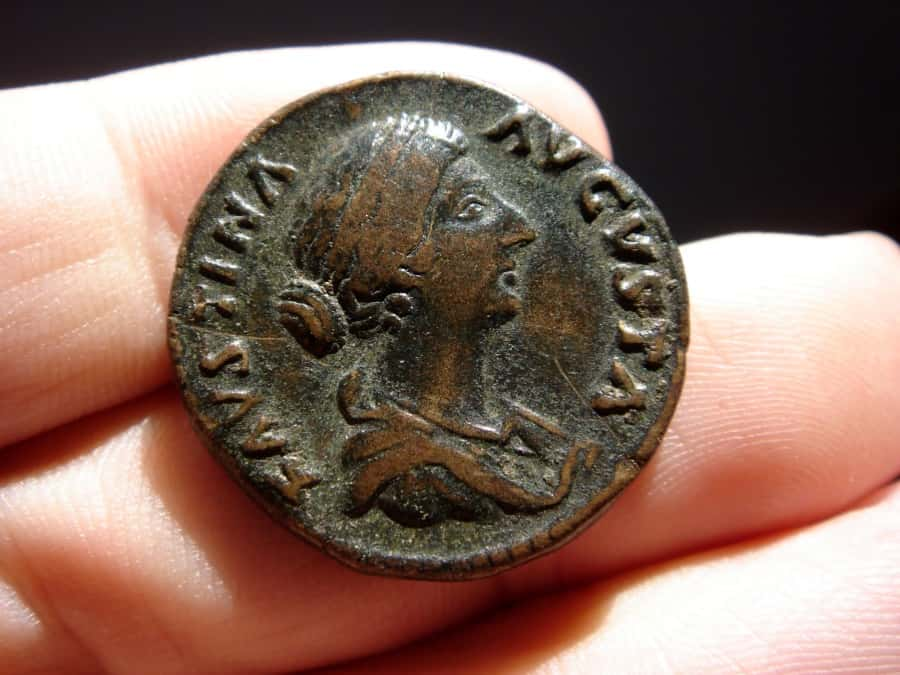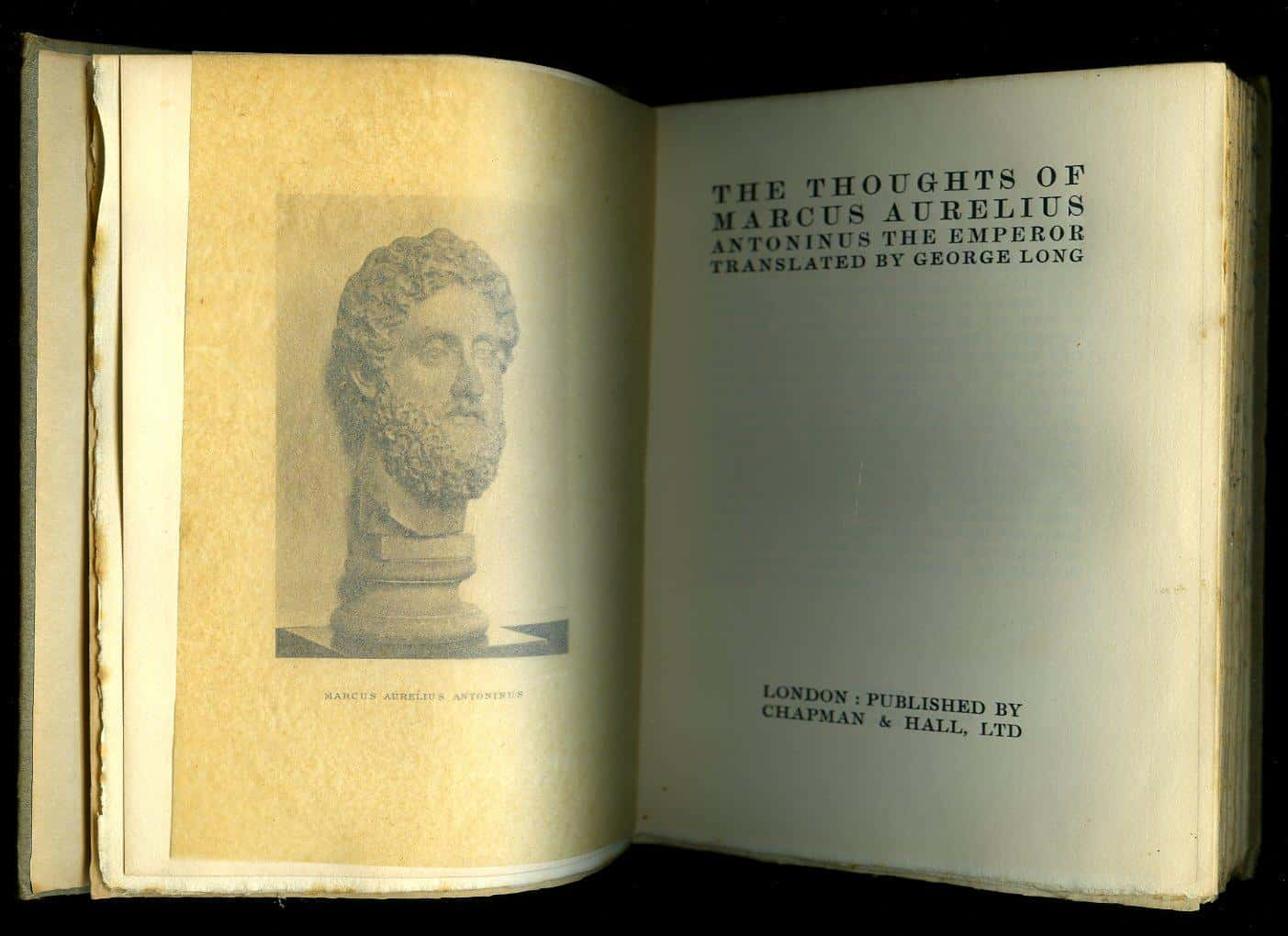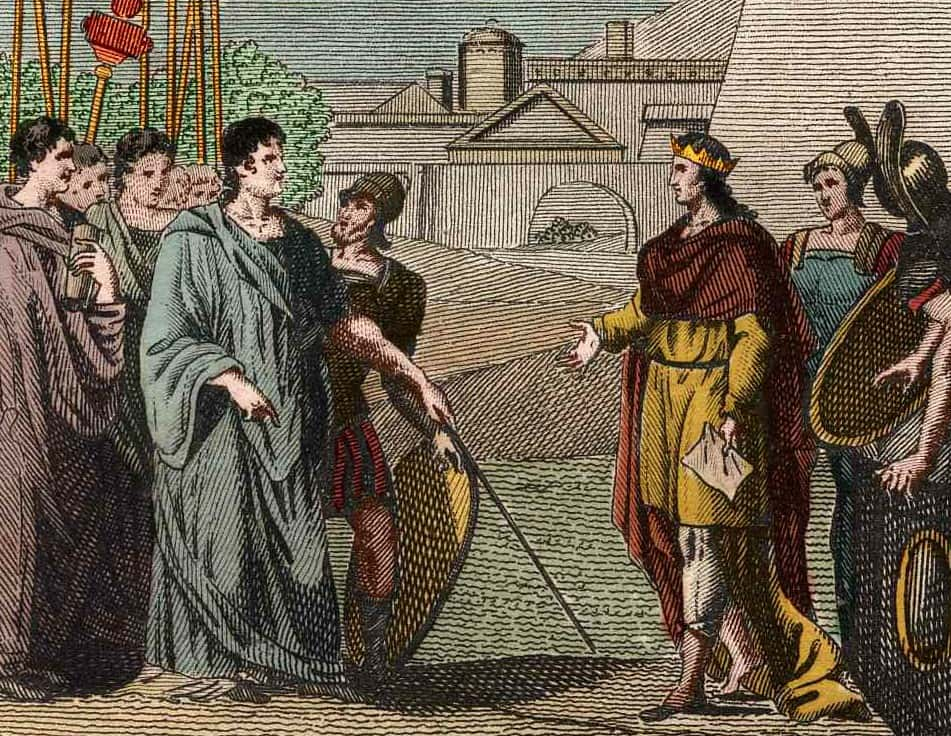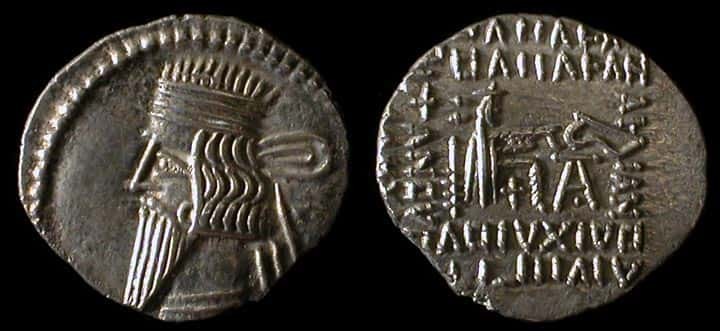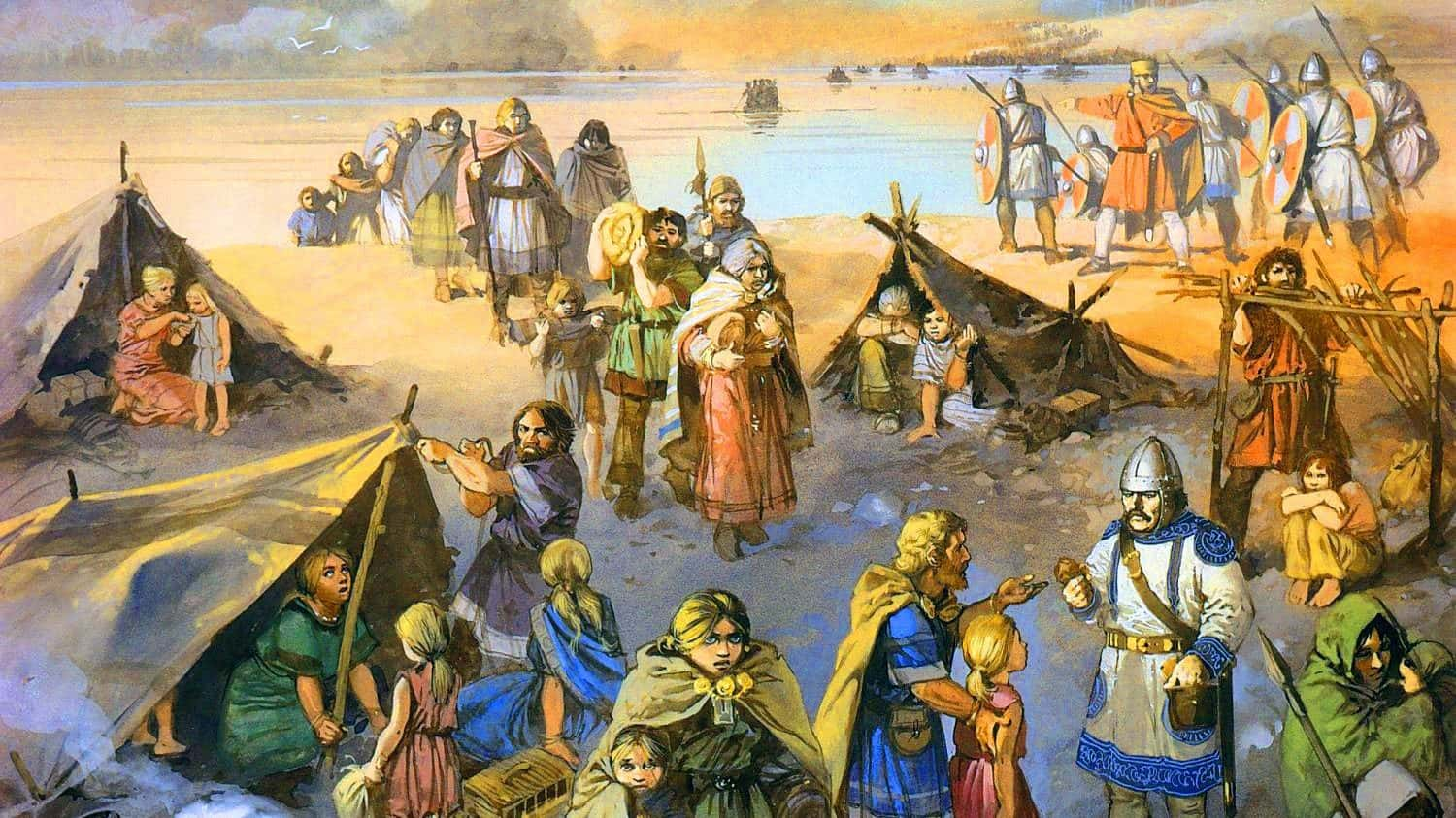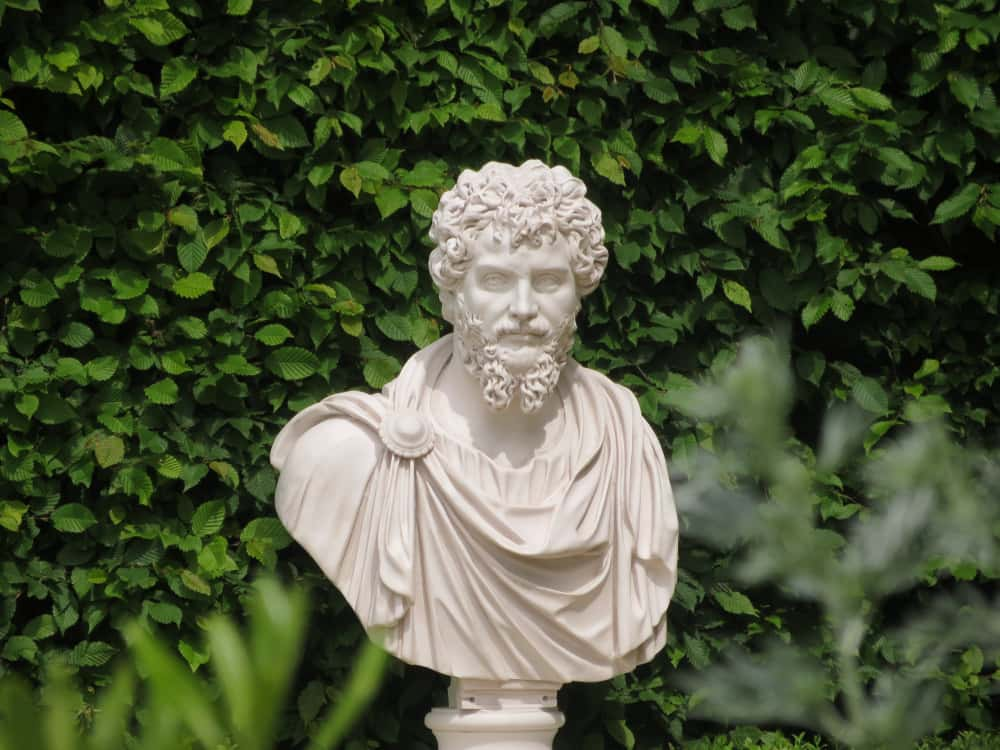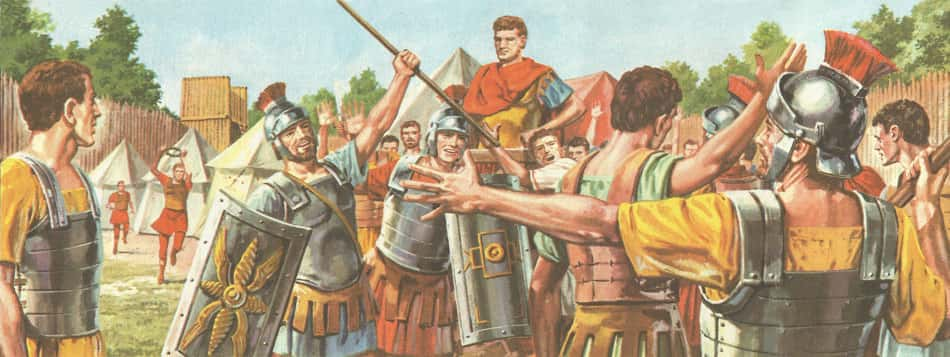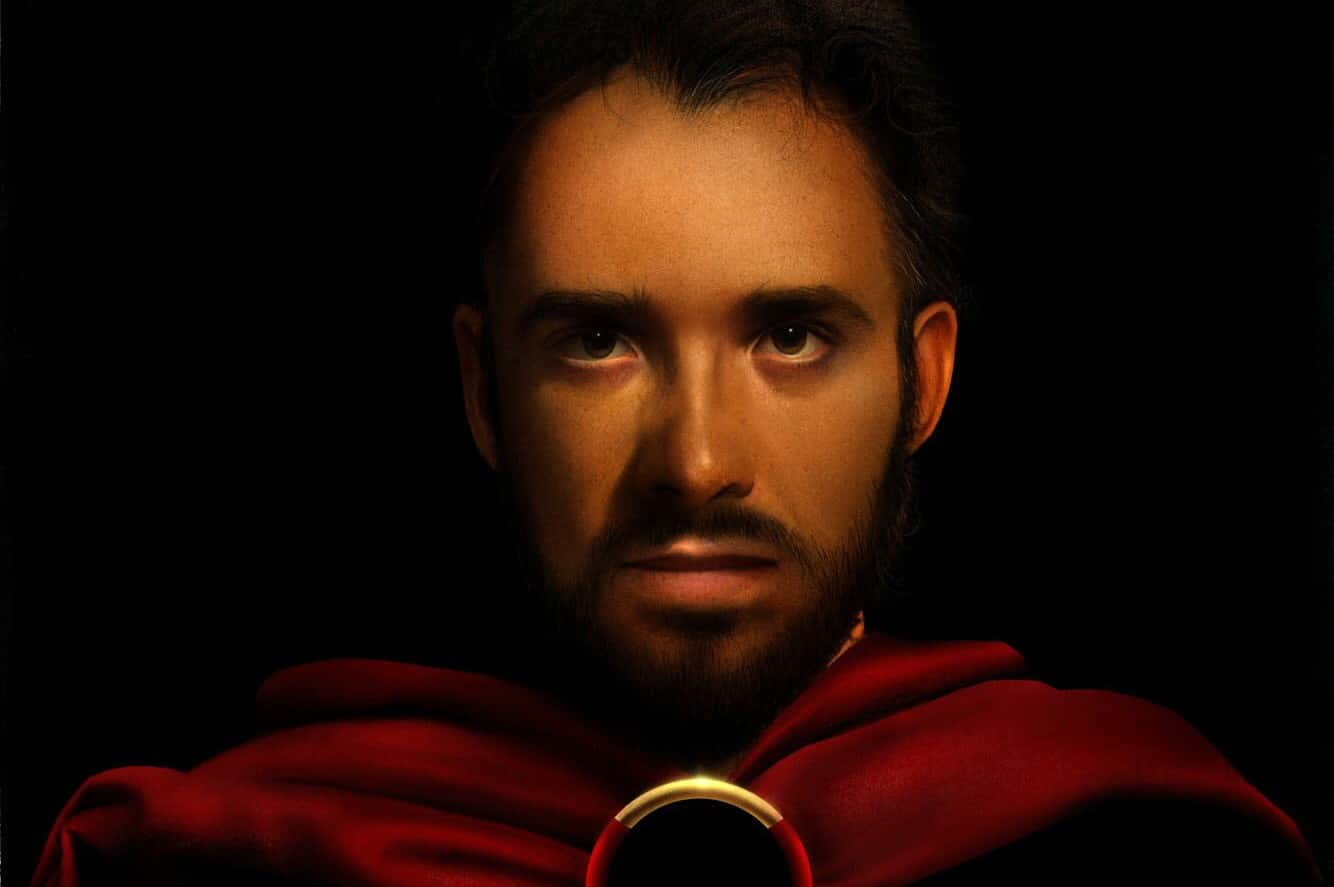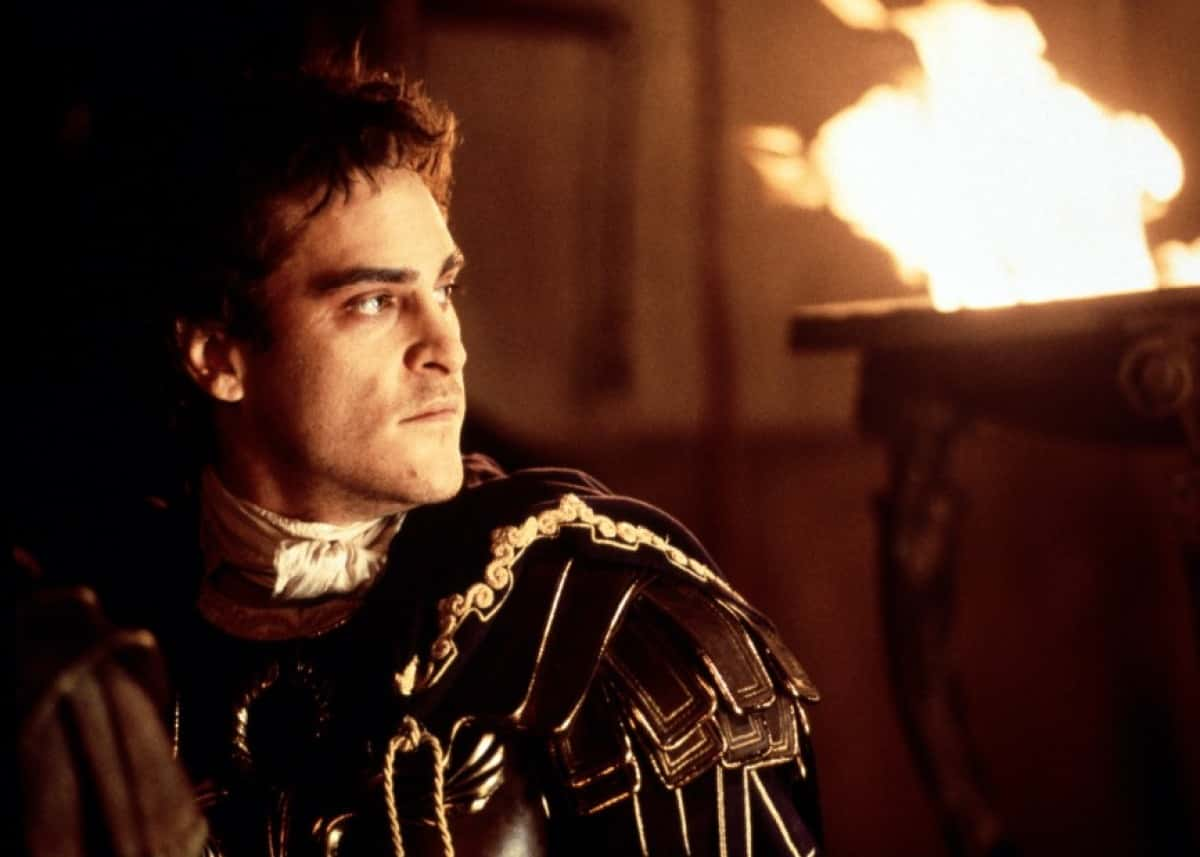“The impediment to action advances action. What stands in the way becomes the way.”
Marcus Aurelius ruled as Emperor of Rome from 161 AD until his death on March 17, 180 AD, and he carries a legacy as one of the most respected emperors in Roman history. He successfully held Rome together during a time of near-constant war and disease. The great city's prestige was also beginning to crack due to famine and slavery, but Aurelius was able to rule for nineteen years and leave behind a positive legacy—something few Roman emperors can claim. His writings have inspired philosophers for centuries, and his work is still being read and analyzed to this day. So what was so great about the guy who most of us just remember as dying at the beginning of Gladiator? Read on for 42 legendary facts about Marcus Aurelius, Rome's great Philosopher King.
Marcus Aurelius Facts
42. Dear Diary
One of Aurelius’ greatest legacies is his contribution to the philosophy known as stoic optimism. Aurelius’s Meditations are now viewed as an essential document on the school of thought. The book is the result of Aurelius’ diary entries during military campaigns, stretching from 170 to 180 AD.
Stoic optimism is basically a mindset that urges followers to focus on how they react to situations, instead of focusing on the unfairness of misfortune e.g. “Our actions may be impeded… but there can be no impeding our intentions or dispositions. Because we can accommodate and adapt.” The Stoics also emphasized virtuous action and self control.
Stoicism’s origin is credited to Zeno of Citium, in the early 3rd century BC. However, Aurelius became an apt pupil and eventually an apt teacher. The principles espoused in Meditations have even inspired figures such as Steve Jobs.
41. Foster Child
Aurelius was born into a wealthy family, but wasn’t originally in line for the throne. However, Emperor Hadrian’s intended successor passed away, so Hadrian selected Titus Aurelius Antoninus to succeed him. Hadrian, who took notice of Aurelius’s intelligence, then advised Titus to adopt Aurelius. Aurelius was already seventeen by then, but his new dad helped him learn more about politics.
40. The Two Kings
Aurelius ascended to the throne after Titus, then known as Emperor Pius Antonius, died. Aurelius was the only named successor, but he also selected his adopted brother, Verus, as joint ruler. This joint rule marked the first in Roman history. The two ruled Rome together until Verus’s death in 169 AD, which is attributed to an unidentified illness.
39. Golden Age
Aurelius is considered the last of the Five Good Emperors. He is accompanied by Nerva, Trajan, Hadrian and Antoninus Pius.
These emperors are recognized for the level of political stability and power they brought to Rome during their reigns. Aurelius was known for his aggressive expansion and military campaigns, as well as his rationality and intelligence. As far as Roman Emperors go, that's about as good as a legacy gets.
38. Infant Mortality
Aurelius had fourteen children but only one son and four daughters survived to adulthood. The son, Commodus, became the first biological son of an emperor to survive to adulthood in over seventy years—Rome wasn't exactly a safe place to be an emperor's kid.
37. Open Minded?
Many Roman emperors have a reputation for not being very open to Christianity (look up Nero), yet some sources cite Aurelius as tolerant. However, he was also known for never opposing local uprisings against Christians, and his Meditations also include several derogatory references to Christians, criticizing them for their “obstinacy” or stubbornness. I guess it didn't take much to be considered "tolerant" in ancient Rome.
36. Entry Level
Aurelius’s first position in politics was consul, or leader of the senate. He rose to the post in 140 AD, and held it two more times before ascending to Emperor. No one can say he didn't put in his time.
35. Still Standing
Following Rome’s conversion to Christianity, most statues of Roman Emperors were melted down to make coins or statues for churches. However, one of Aurelius’s statues was mistaken for Emperor Constantine’s (first Roman Emperor to convert to Christianity) and it was left alone, remaining the only bronze statue of a pre-Christian Roman emperor.
34. Flip Side
One way Aurelius was immortalized was his visage on Roman coins or aureus. The gold aureu had a bearded Aurelius one one side and a younger, unshaved Aurelius on the other. The silver aureu has a younger Aurelius adorned with the dressing of the high priesthood.
Faustina’s fertility was also celebrated in coin, with coins that bore the inscription Fecunditati Augustae, or “To the fertility of the empress.”
 Numi
Numi
33. Raise
Upon ascending to the throne, Aurelius donated money to every member of the Praetorian Guard. The amount, five thousand denarii, was equivalent to sixteen years of pay for a legionary.
 Imgur
Imgur
32. United
To celebrate the beginning of his co-rule with his brother, coins were issued that depicted the two men clasping hands. The coins also contained the inscription “Concordia Augustorum.” One of these coins sold for over $24,000 US dollars at an auction.
 MA Shops
MA Shops
31. Long Way From Home
In April 2018, archeologists found a marble head of Aurelius in the Egyptian city of Aswan. The archaeologists acknowledge it is rare to find signs of Roman emperors in Egypt, but the head is likely a result of Aurelius’s military campaign further east.
30. “Based on a True Story”
While Gladiator depicts Aurelius dying by his son’s hand, the real Aurelius died after coming down with a fever in modern day Vienna. Aurelius was only the second emperor to die outside of Italy, preceded by Trajan.
29. Death From Above
Aurelius's wars with Germanic tribes were a constant presence for most of his reign, becoming an on/off conflict that seemed endless. The wars began in 167 AD when Germanic tribes invaded from the north and made their way into the Roman province of Pannonia (an area encompassing modern countries such as Austria and Slovakia). Most of Aurelius’s campaigns were successful, but peace was never permanent.
28. Broken Telephone
Aurelius’ Meditations was originally titled, Ta Eis Heauton: Greek for “To Himself.” The original name is a reference to the fact that Aurelius wrote the diary entries for himself, never intending them to be read by an audience. One translation after another eventually led to the modern title.
27. RIP
Aurelius’s wife, Faustina the Younger, died in 175 AD while campaigning with him in modern day Turkey. Her death is generally cited as one of natural causes, but author Dio Cassius Dio also asserts it was suicide. Faustina was later deified by the senate, an honor usually reserved for emperors.
26. Private
Like most of the royalty at the time, Aurelius was exclusively homeschooled. In particular, Aurelius’ painting teacher, Diognetus, is suspected to be the seed of Aurelius’ interest in philosophy. Diognetus encouraged Aurelius to follow the habits of Greek philosophers, such wearing a Greek cloak and sleeping on the floor (Aurelius’ mom put her foot down on the latter).
 Pinterest
Pinterest
25. Through The Ages
Aurelius’ Meditations ultimately influenced the work of Scottish economist Adam Smith. While at the University of Glasgow, Smith studied under Francis Hutcheson. Hutcheson was a leading figure of the Christian Stoicism movement. Smith quickly grew to value Aurelius’ ideas, as evidenced by his thoughts on the inner conscience and the importance of self control. Smith’s idea of the “invisible hand,” the invisible market forces that guide supply and demand, is also viewed to be an offshoot of Aurelius’ view of unpredictable universal forces.
24. Trendsetter
Commodus’s rule marks only the second time that a biological son succeeded his father as Emperor of Rome. Due to Commodus’s performance, you can probably see why it wasn’t always a good idea to follow the bloodline.
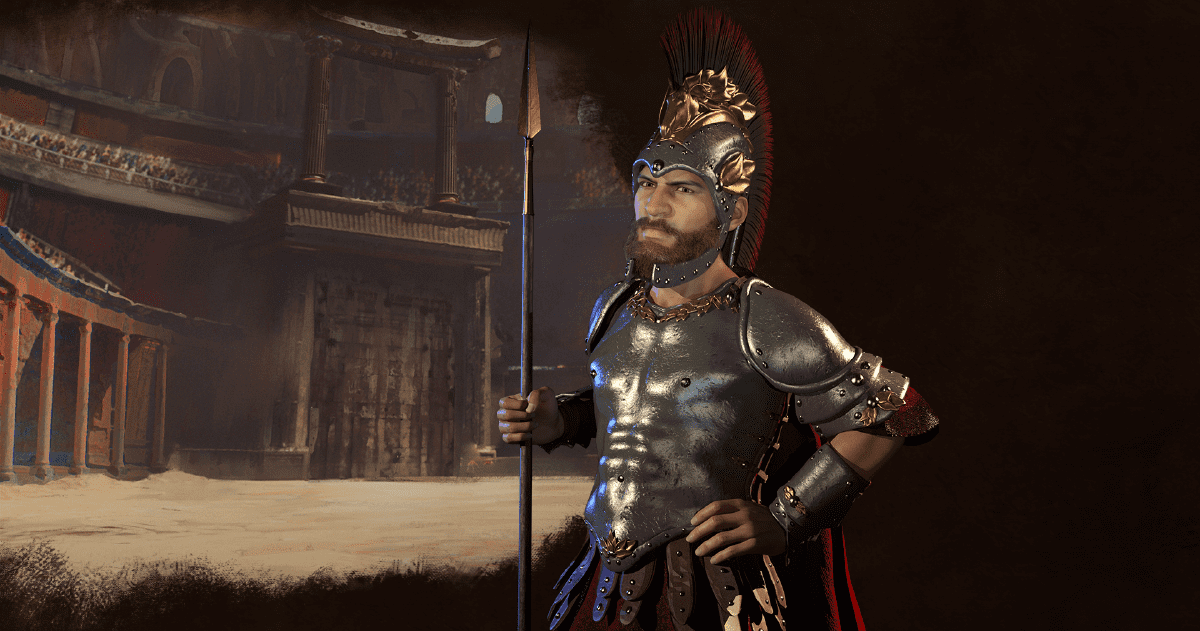 Civilization VI Customization Wik
Civilization VI Customization Wik
23. Can’t Catch A Break
The Antonine Plague broke out in 166 AD (165 AD according to some sources), proving to be another obstacle to Aurelius’ grip on Rome. It’s believed that Verus brought the plague back with him after a campaign in the east. The disease is usually identified as smallpox, with some anthrax theories thrown in. The entire Roman Empire, stretching from France to Iraq, was affected. Thousands of people died every day, with the total death toll estimated at around five to ten million. Aurelius did his best to counter the plague, conscripting gladiators into the army to make up for dead soldiers. He also had the government subsidize funerals, and sold off some of his imperial possessions to cover the costs of new soldiers.
22. The Trinity
While war took up a good deal of Aurelius’ time, most of his time spent campaigning was only after Verus’s death. Most of his time prior was spent in the capital administering to the law.
Aurelius’ focuses included the freeing of slaves, the care of orphans and minors and the selection of city councillors, or decurions.
 SingSnap
SingSnap
21. Army of Two
From 177-180 AD, Aurelius ruled Rome jointly with his son Commodus, ending his reign the same way it began.
20. Rep
Aurelius is sometimes known as “The Philosopher King,” taking the name from Plato’s writings. The Philosopher King was the concept of a ruler who rules for the greater good, not for himself, and was seen by Plato as the ideal system of government.
Aurelius allowed writers to mock him without fear or punishment (a big deal at the time), and he attended to matters, such as local famine, personally instead of sending subordinates. He also rejected the lavish lifestyles of his predecessors, being taught from an early age to live plainly.
19. I’ll Be Back
Author Ryan Holiday used Meditations as an inspiration for creating his own book on stoic optimism. Holiday views Meditations as “the greatest book ever written” and he built on its ideas and added modern context to create The Obstacle is the Way. The book is now a resource for people like LL Cool J and Arnold Schwarzenegger. If we'd said at the beginning that Marcus Aurelius inspired Arnold Schwarzenegger, would you have believed us?
18. Habla Espanol
Aurelius was born Marcus Annius Verus, to a Spanish father, Annius Verus. Annius died when Marcus was three months old. Marcus was then raised by his grandfather until he was later adopted by Emperor Antoninus Pius.
17. The Motto
Aurelius’ stoic mindset can be summarized by his rumination on how to start each day: "When you wake up in the morning, tell yourself: The people I deal with today will be meddling, ungrateful, arrogant, dishonest, jealous, and surly. They are like this because they can’t tell good from evil. But I have seen the beauty of good, and the ugliness of evil, and have recognized that the wrongdoer has a nature related to my own — not of the same blood or birth, but of the same mind, and possessing a share of the divine. And so none of them can hurt me. No one can implicate me in ugliness. Nor can I feel angry at my relative, or hate him. We were born to work together like feet, hands, and eyes, like the two rows of teeth, upper and lower. To obstruct each other is unnatural. To feel anger at someone, to turn your back on him: these are obstructions."
16. Hey, It Was Ancient Times
A detail that seems to get glossed over is that Aurelius’s wife was the daughter of Antoninus Pius, making her Aurelius’s adopted sister.
15. Commander in Chief
Aurelius’s ideas were also published in the collection, The Thoughts of Emperor M. Aurelius Antonius. President Teddy Roosevelt was among the book’s readers—Roosevelt carried his copy with him during his South American expeditions.
14. Father
At the age of eight, Aurelius was inducted into the Salian priesthood by Emperor Hadrian. The Salian priesthood was composed of twelve priests, who were devoted to the Roman god Mars.
13. Come on Bro
War began on the eastern front when Vologeses III of Parthia revolted against the Romans by destroying a legion and invading Syria in 162 AD. Verus was tasked with ending the revolt, but Verus decided to delegate to his officers. While they fought, Verus drank and embraced some other vices. Verus also had a later misstep when he and his army plundered a city, after it had surrendered. These mistakes would end up deeply damaging Aurelius' trust in his brother and co-emperor.
12. The Slender Man
Prior to entering politics, Aurelius underwent physical training to harden his body. The training included hunting and wrestling. Aurelius is described as being relatively weak and thin compared to his peers, but it doesn’t seem like that held him back.
11. Opportune Moment
Rome’s defences were weakened in 166 AD due to the plague, and Germanic tribes took full advantage. Under Aurelius’ rule, Italy was invaded for the first time in two and a half centuries.
10. We’ll Never Know
Aurelius’ life was chronicled extensively in ancient times. The works of Marius Maximus and Ignotus were considered the most reliable ancient sources. However, as with so many ancient sources, both of the original works are lost to time, so we have to make do with what has managed to survive to the modern day.
9. Reach
A bust of Aurelius turned up in Greece as well. The bust was found in 1789 and made in 161 AD. A bust of Verus and Herod Atticus were also present in the same chamber. Atticus was a teacher and friend of both of the brothers.
The style of the sculpture, such as the limited use of the drill to sculpt the hair, made it clear it was conceived by a Greek sculptor, further illustrating the reach of the Roman Empire.
8. Rave Reviews
Chinese premier Wen Jiabao claimed that he read Meditations over 100 times. Shortly after his declaration, the book hit number five on China’s bestseller list.
7. Reflection
After contracting his fatal illness, Aurelius worried his son would favor pleasures over serving his people. Aurelius looked to Nero as an example of what a ruler could become. Nero was legend by this point for murdering his mother, among other things. I guess Roman emperors viewed him a little differently than we do today...
 Youtube
Youtube
6. It Was The Best of Times…
The end of Aurelius’ reign marks the last of the Five Good Emperors and the end of the Pax Romana. The term literally translates to “Roman peace,” lasting from 27 BCE to 180 AD.
This period was marked by Roman Empire’s population peaking at seventy million, and also peaking in terms of land mass. This time saw the development of new innovations such as more advanced roads and aqueducts. Despite the years of war Aurelius endured, his reign is still considered a relatively stable one economically and politically.
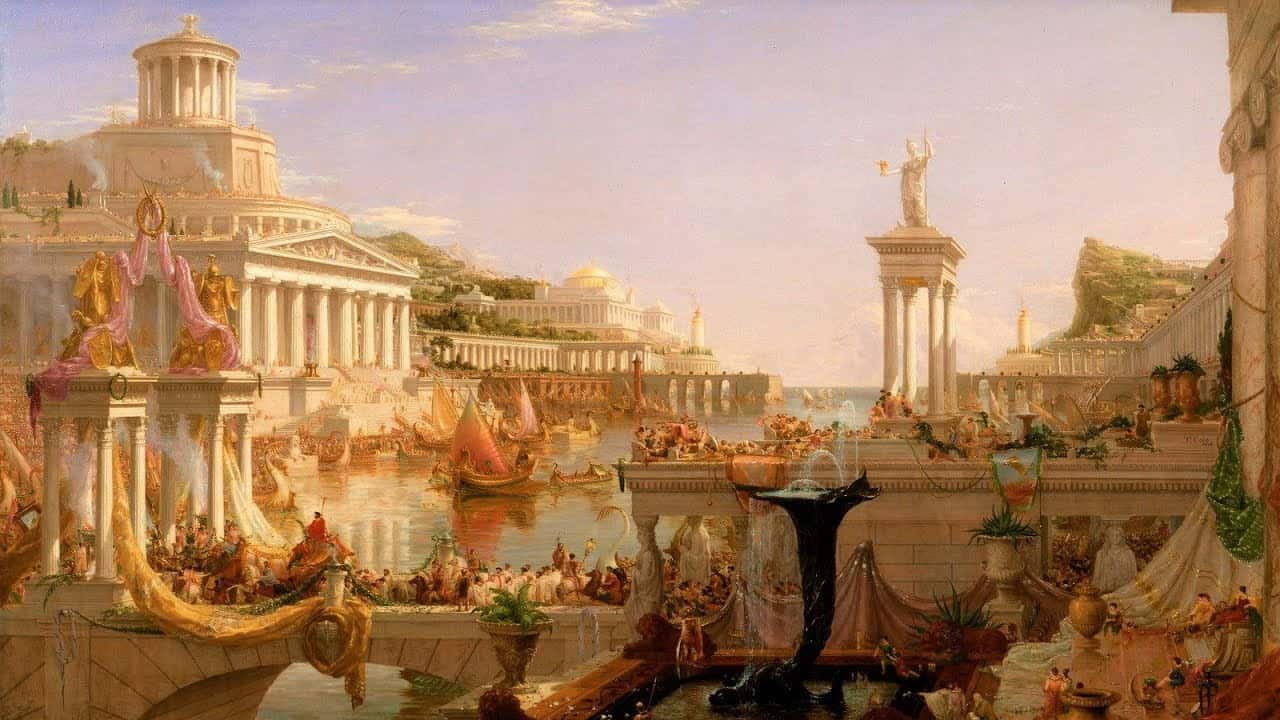 Youtube
Youtube
5. Pops
Aurelius credited his grandfather for cementing his most important values, namely integrity and humility. Aurelius considered his grandpa his biological dad, and praised him for being willing to listen to “anyone who could contribute to the public good.” Aurelius also gained strength from his granddad’s self-control in abstaining from pleasures.
 EW
EW
4. Last Stand
Following the invasion of Italy, Aurelius’s campaign against the Germanic tribes led him to the River Danube. His army faced their opponents on the frozen river, outnumbered and surrounded. Aurelius instructed his men to form a square around the cavalry, using their shields to repel enemies. The move forced the Germanic army to engage in close quarters combat, where the Romans excelled. Following this unlikely victory, Aurelius was able to impose punitive peace terms on his enemies.
3. Good Looking Out
Aurelius’ conquests saw Rome’s borders stretch to Syria and even Egypt. One of Aurelius’ generals, Gaius Avidius Cassius, was appointed Supreme Commander of Roman Forces in The East in 172 AD. Cassius got a little more ambitious and declared himself Emperor of Rome after hearing that Aurelius was ill. However, that rumor wasn’t true, and Aurelius traveled East to put things in order. Cassius was killed by one of his own soldiers before Aurelius arrived, and the soldier presented Cassius’ head to the true emperor.
2. The Apple Fell Far From The Tree
Commodus was known for his corruption and his eccentric behaviour. He believed that he was a descendant of Hercules and fought as a gladiator in the arena. The fights were sometimes one sided, like the times he slaughtered animals such as ostriches and giraffes. He would eventually become more and more of a megalomaniac, forming a personality cult around himself as Rome devolved into a city of rampant conspiracies and intrigue. He nearly bankrupted the Empire due to his spending, and he was eventually assassinated. While he was notc as bloodthirsty as he was portrayed by Joaquin Phoenix in Gladiator, he still couldn't quite extend the streak to Six Good Emperors, no matter how great his father was.
1. Marriage Counseling
Aurelius married Faustina The Younger in 145 AD. She gave birth to all of his fourteen children over twenty-three years (yikes). However, rumors allege that she wasn’t faithful—one account, by authors Herodian and Dio Cassius, alleges that Faustina fell in love with a gladiator.
In this account, Aurelius finds out about Faustina’s crush and seeks advice from Chaldean soothsayers. The soothsayers suggest that Faustina have sex with the gladiator. The gladiator should then be killed while he was still in the act. Faustina should then bathe in his blood and make love to her husband. Allegedly, the couple actually went through with the routine.
Some writers suspect the rumors about Faustina were due to a sexist environment that felt threatened by her attempts to get involved in politics, which wouldn't be too surprising, but the blood-bathing story is a lot more interesting.
Sources: 1, 2, 3, 4, 5, 6, 7, 8, 9, 10, 11, 12, 13, 14, 15, 16, 17, 18, 19, 20, 21, 22, 23, 24, 25, 26, 27, 28, 29, 30, 31, 32, 33, 34, 35, 36, 37, 38, 39, 40, 41, 42


